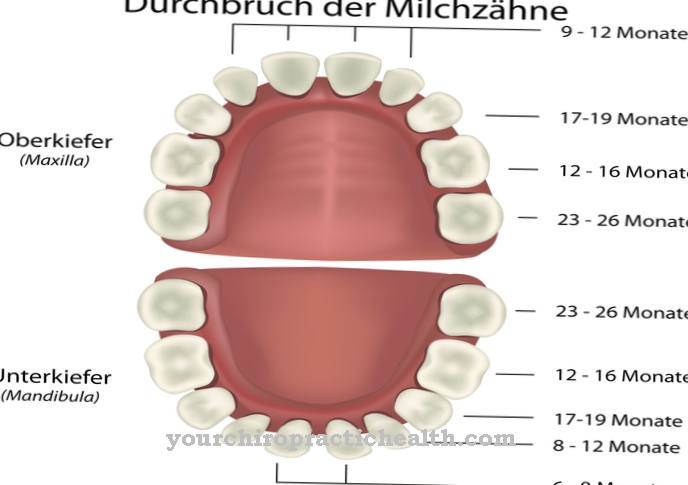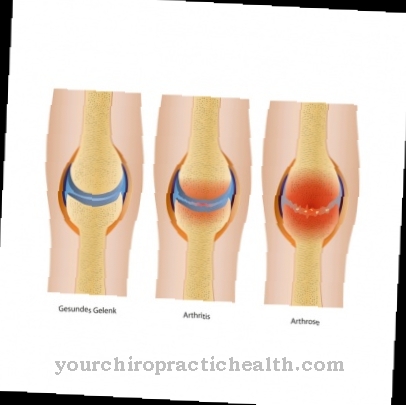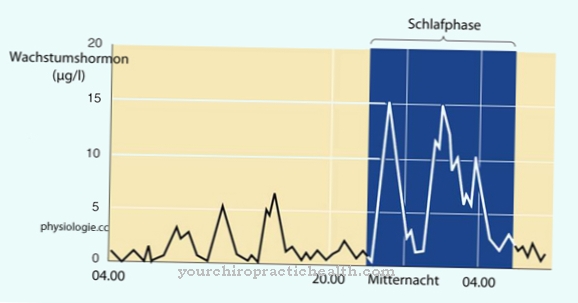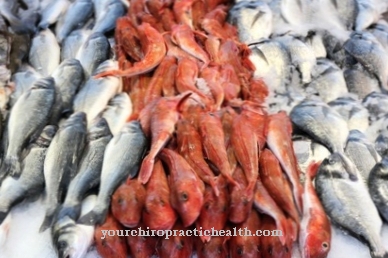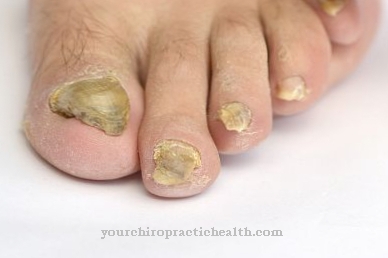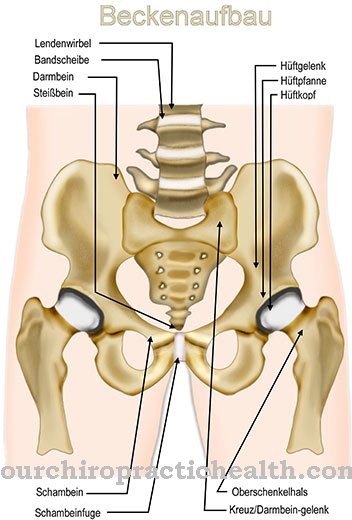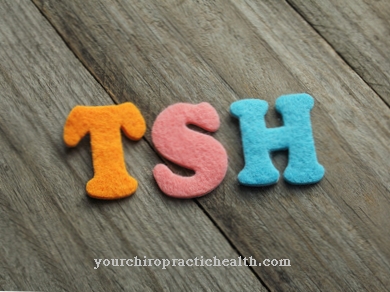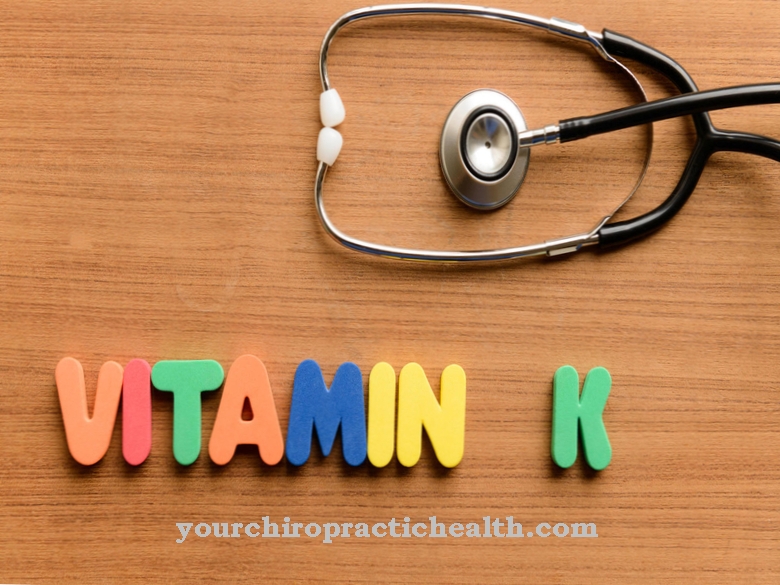From Cravings one speaks when the person concerned suddenly develops a powerful hunger and crams everything he can find into himself. In the long term, this leads to significant weight problems.
What is food cravings?

Cravings describes a state in which those affected eat whatever they can find indiscriminately - even if one food usually does not taste good to them. After that, they are completely saturated, they can get sick, and they occasionally throw up willingly or involuntarily.
The cravings occur about the same frequency as a one-time thing or in bursts over and over again. Above all, however, the cravings do not serve the necessary food intake; the person concerned tries to satisfy an unsatisfied need that has nothing to do with hunger, but rather with the psyche.
During a ravenous hunger attack, more and more unhealthy foods that are high in sugar are consumed.
causes
There are 3 causes of cravings: physical needs, the psyche and a combination of both. Physically induced cravings occur when there is hypoglycaemia or an underlying disease such as diabetes mellitus. Pregnant women also eat unusual things or even an unusual amount - but the cause of their cravings is the hormonal confusion in the first few months of pregnancy.
Eating disorders such as bulimia or anorexia play a role in the psychological area, and obesity patients also suffer from relapsing cravings. Stress and negative emotions are the direct triggers, because the unhealthy food releases serotonin and you are happy again for a short time.
The mixed form contains components from both worlds and occurs more frequently in the event of psychological stress, which is then accompanied by hypoglycaemia and forcing the body to absorb sugar - in such a way that it can be metabolized quickly.
Diseases with this symptom
- Diabetes mellitus
- Obesity
- Alcohol intoxication
- Liver disease
- bulimia
- Worm diseases
- Hyperthyroidism
- Metabolic disorder
- Binge eating
diagnosis
For the medical professional, cravings can be recognized by the fact that the patient is acting without real control over his behavior. The anamnesis is enough to recognize that the person concerned suffers from cravings in spurts and that this does not serve the pure maintenance of the body substance.
Food cravings occur outside of regular meal times and those affected often suffer psychologically from being carried away. The exact diagnosis is made through physical examinations such as taking blood and, if necessary, talking to a psychologist.
In the case of cravings, a more detailed diagnosis must often be made and the underlying disease determined. If pregnant women suffer from cravings, however, it does not need a separate diagnosis, the causes are clear and it is unproblematic.
Complications
Cravings are occasional even in healthy people. Unless it becomes permanent, that's not a problem. However, food cravings can also indicate more severe physical and psychological problems. Initially, cravings can be caused by a number of organic disorders, but are often not recognized as a symptom and therefore not taken seriously.
Metabolic disorders in particular come into question, but hormonal problems are also conceivable. Since many people recognize occasional cravings as a sign of stress, in these cases it does not occur to them that a doctor's visit is due. This thought is actually not entirely wrong, because at least as often behind frequent cravings there is also a mental problem that is not recognized promptly. Not only can it be unhealthy stress, it can just as easily be depression or an eating disorder.
Particularly in the case of cravings for emotional reasons, those affected do not like to admit to themselves that they have a problem, which is why the untreated cravings can gradually make them overweight to obese. Obesity, in turn, is a very dangerous condition, because obesity can lead to secondary diseases such as hormonal imbalances, an increased risk of certain types of cancer or cardiovascular diseases. Recurring cravings that continue over a longer period of time should therefore always be presented to a doctor.
When should you go to the doctor?
Cravings should by no means be confused with the usual intense hunger. People with cravings respond with an almost uncontrolled meal. This is not about the need for increased food intake, as is normal, for example, after waiting a long time for food or after physical exertion.
If cravings are not a one-off episode but occur regularly, a doctor should be examined. Otherwise there will be massive weight problems. On top of that, there is a risk of other secondary diseases - for example cardiovascular diseases and even cancer.
The occurrence of cravings can have physical as well as psychological causes and a combination of both. The first point of contact in case of cravings is the family doctor. Depending on the physical cause of the cravings, he may be able to carry out the treatment himself or refer to an internist. Metabolic disorders such as diabetes mellitus can trigger cravings in the case of physical hypoglycaemia.
Cravings are often psychological and belong in the treatment of a psychologist or psychotherapist. The typical keywords for psychological cravings are anorexia, bulimia, binge eating, stress and depression.
Doctors & therapists in your area
Treatment & Therapy
Physical cravings can be treated by eliminating the underlying problem. Obesity patients are offered, for example, liposuction, stomach reduction or a similar surgical method, which is supposed to bring about success faster and relieve the body. Medication that has already been administered may need to be reset to prevent future cravings.
Treatment is more difficult if you have a psychological cause or mental illness, such as bulimia or binge eating. Affected people often do not even see that they are sick and must first gain this knowledge before the psychiatrist can do anything. A hospital stay is required to prevent the sick from possibly dying.
Simpler psychological causes are dealt with by suggesting better coping strategies than cravings, such as meditation, exercise or a hobby that is fun and relaxing. In the mixed form, the respective problems are treated individually so that the hunger attacks come to an end.
Outlook & forecast
Cravings come in the form of a ravenous hunger attack or relate to a single or a few specific foods or tastes over a long period of time. If the cravings are due to a lack of nutrients, the cravings will persist for a while, even after changing your diet or taking nutritional supplements. As the deficiency gradually recedes, the cravings also improve.
If, on the other hand, he has hormonal or medicinal reasons, there will always be cravings as long as the condition persists or the triggering drug is taken. It becomes even more permanent if it has psychological reasons such as an eating disorder. In these cases, cravings can only be got under control with psychotherapeutic treatment and can keep coming back for a lifetime, for example with binge eating disorder.
When it occurs, the individual food cravings usually relate to certain foods or tastes and can be satisfied, at least for a short time, by eating the respective food. Since there is no longer a healthy feeling of appetite when there is cravings, the person affected no longer has a sense of how much he is eating and when he is full. This can lead to obesity in the long term if the lifestyle is characterized by little exercise and the cravings are not only sporadic.
prevention
You can prevent cravings by calming yourself down in other ways and making yourself happy when you are going through psychological stress. Talking, doing sports, working out or other coping strategies are far more fulfilling than cravings - you'll soon notice for yourself.
Eating disorders can be prevented by consciously eating a sensible diet and trying to get sporty and slim rather than starved and skinny. The media's ideals of beauty do not correspond to reality, you have to make yourself and especially young people aware of this again and again.
You can do that yourself
Various home remedies and measures can help with cravings. A simple trick is to drink a glass of water before every meal and during acute food cravings to fill your stomach. A banana, glucose and other foods with a high energy density also reduce hunger quickly and effectively.
Chewing dried sage leaves also relieves cravings. A cup of mate tea relaxes the stomach and can help reduce food cravings. In addition, food rich in glutamate should be avoided. If you feel hungry, you can also eat raw vegetables, sauerkraut or low-fat quark. Attacks on sweet things can be alleviated by brushing your teeth, while cravings for salty foods can be reduced by spicy peppers, cucumbers or carrots. Acute also helps against cravings a glass of water with a shot of Maggi.
In addition to dietary measures, acupressure can often also reduce cravings, effective points are for example directly on the cheekbones under the eye or on the furrow between the nose and upper lip. If these home remedies and self-measures do not show any noticeable effect, the causes of the cravings must first be found and eliminated.


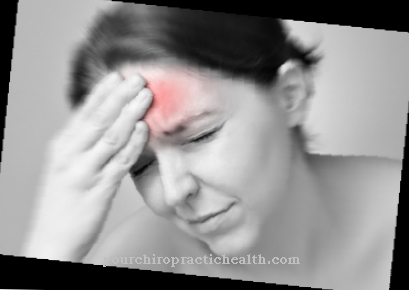
.jpg)
.jpg)

.jpg)

